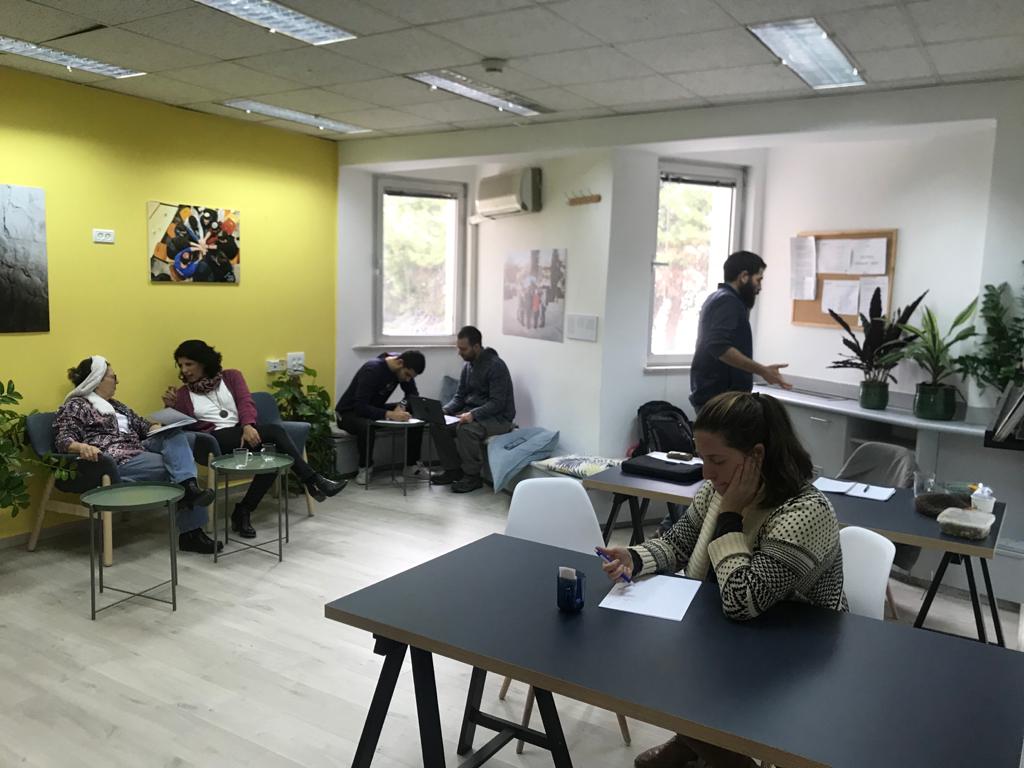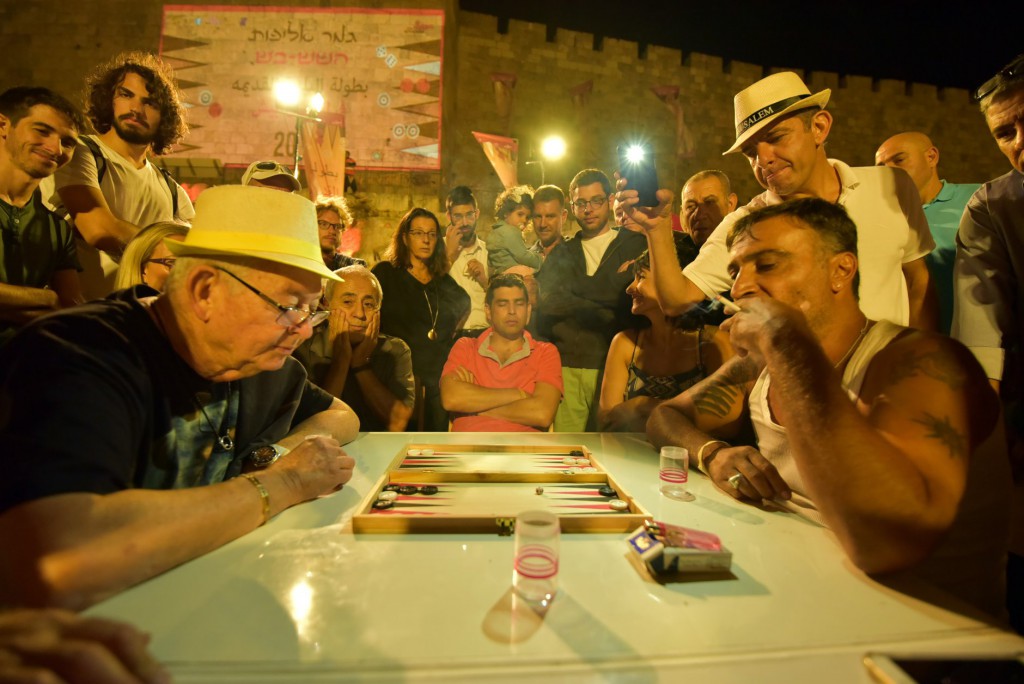Jerusalem is a complex city with many challenges. Its diverse residents come from a wide spectrum of cultures and religions, and speak many languages. The Jerusalem Foundation supports the city’s residents to help build a modern, open and vibrant city together. In line with our vision for 2030, we are creating opportunities for cross-cultural dialogue through joint encounters, accessibility programs, and communal initiatives between Jews and Arabs, and between ultra-Orthodox and other Jews.
Our programs: Civil society institutions have a vital role to play as a force for change. At the Jerusalem Foundation’s initiative, over 50 non-profit organizations have come together through the Jerusalem Tolerance Coalition and the new Ellen Barnett Shared Living Hub operating out of our office in Jerusalem.

- The Jerusalem Tolerance Coalition is a joint initiative of the Jerusalem Young Adults Center and the Jerusalem Foundation. It is composed of dozens of organizations, institutions, agencies and initiatives that work to advance shared living. They focus on people of different faiths and orientations, and are seeking to make Jerusalem a city where all groups are included and live together harmoniously. One of their flagship events is the Jerusalemite Day of Diversity (Yom Yerushalmi), a series of events that mark Jerusalem Day by celebrating the diversity of Jerusalem through tours, workshops, film events, discussion circles and performances.
- The Ellen Barnett Shared Living Hub is Jerusalem’s first hub for social change organizations and initiatives promoting cross-communal and cross-cultural dialogue in Jerusalem. The Hub acts as a meeting point for the organizations that make up the Jerusalem Tolerance Coalition, empowers them to network and create partnerships, and is home to a number of ‘anchor’ groups who work out of this shared physical space:
- Kulna Yerushalayim, founded by Arab and Jewish friends from East and West Jerusalem working in partnership to advance grassroots change. One of their flagship events is the Jerusalem Double, a series of backgammon tournaments to bring Jews and Arabs together.
- Learning Together in Jerusalem, training school principals and teachers from 100 Jewish and Arab Jerusalem schools to develop and promote education toward shared living for thousands of East and West Jerusalem children.
- The Shared Living Pedagogic Initiative, a pilot program that emerged from the Learning Together program above, providing intensive multicultural teacher training, pedagogic tools, curricula and dialogue techniques, for Jewish and Arab educators teaching children of different cultures, languages, religions and national identities.
- Jewish Pluralism initiatives: The Tzionei Derech social movement, which is dedicated to creating a strong, vibrant and engaged civil society committed to Judaism, pluralism and democracy; and Kehilat Zion, a pluralistic community of Israeli Jews gathering together to re-dream Jerusalem as a meeting point and inspire Jews and non-Jews through prayer, social justice and study.

Other examples of Jerusalem Foundation projects which support and advance shared living in Jerusalem include:
- The Hapoel Katamon football club, which operates a neighborhood league for Jewish and Arab youth teams, and uses sport as a tool for meaningful encounters and educating children about respect and tolerance.
- Runners Without Borders, an organization which uses running as a way to connect Arabs and Jews in Jerusalem, and as a tool to empower youth and women.
- The Jewish and Arab Teachers programme places Arab teachers into Jewish schools to teach Arabic, and Jewish teachers into Arab schools to teach Hebrew. The programme exposes schoolchildren to teachers who are native Arabic/Hebrew-speakers and from a different culture to their own teachers.
- The Multicultural Teacher’s Lounge brings together Arab and Jewish teachers from East and West Jerusalem for a series of 10 in-depth encounters, in which they share their challenges and successes, and exchange ideas through group activities, tours and dialogue workshops.
- The Max Rayne Hand in Hand School for Bilingual Education which has enabled Jewish and Arab children to study together since 1998.
- 0202 provides a new point of view of Jerusalem, through Facebook pages and a dedicated web site, which reach over 110,000 people every week, public discourse from East, West, and Haredi Jerusalem is translated into three languages, opening a window for empathy and understanding between Jerusalem’s diverse communities.
- Language as a Cultural Bridge seeks to advance language studies in both Hebrew and Arabic, for both children and adults, in a number of frameworks.
